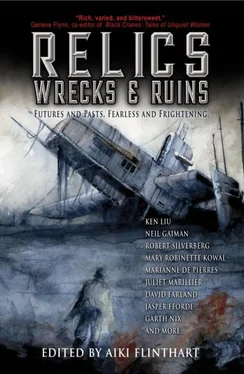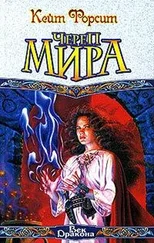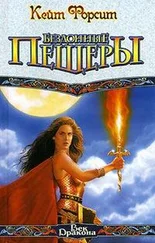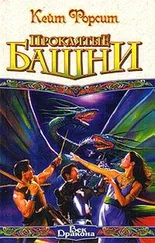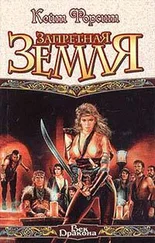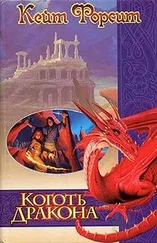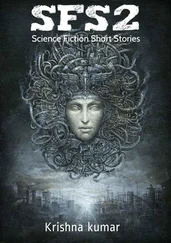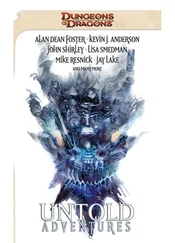We have only the artifacts themselves to guide us. Which brings me to the central problem of my research, and with all research into them.
Context.
#
The Forger into Darkness was a rated ship with room on board for seventy people, a small warehouse for their supplies, the slipdrive chamber and housing, and an interior design of cream, pale blue, and an orange that should have been hideous, but somehow managed to seem cheerful. The ship sat in its gate high above the atmosphere, waiting for the last of its passengers to arrive.
Peros paced the pilot’s quarters. By regulation, he could have been downgraded to a single now that he was unaccompanied by a spouse or spouses, but Nadima had left with so little time before the departure that the change would have been more trouble than it was worth. Instead, the other sink in the bathroom went unused. The other half of the bed stood witness by its emptiness. The other closet held nothing but the place where her dresses and gowns, tunics and trousers and undergarments would have been.
Sitting on the desk was the homunculus of Mohommed, their first son. The boy himself—a man almost a hundred and seventy years old, but still in Peros’s mind a boy—was on a habitable moon of Ergregos-7. They were a hundred lightyears apart, but the slip made it as if his son were in the room.
“Did she speak to you?”
“Yes,” Mohommed said.
“Were you able to talk sense into her?”
The homunculus lifted its hands in a gesture Peros recognized. Nadima had made it when she was exasperated, and little Mohommed had learned it and kept it in the patterns of his brain for the fifteen decades since he had left their home to start his own life. The boy likely didn’t know the motion wasn’t his own or where he’d learned it.
“She seems happy,” Mohommed said.
Peros didn’t curse, but his growl made if feel as if he had. “Is she with another man?”
The homunculus leaned forward. “She is on a walking tour of Kellar Complex on Rasia-3 with Fatima Delgado and Abby Haal. I don’t think she has some secret lover, Papa.”
“Then why?” Peros snapped.
The homunculus shrugged. When Mohommed spoke, his voice was weary. “I haven’t lived with her in a century and a half. You woke up beside her every day. You know her better than I do.”
An alert chimed. Peros was expected at the captain’s table for dinner with the VIPs for the expedition. The image of Nadima’s empty chair beside him intruded into his mind, a wave of black dread flowing behind it.
“I have to go,” he said. “Keep at her. Find out what you can.”
“Papa, this isn’t going to help.”
“I just want to understand.”
“Well, you sound angry.”
“I am angry. I can be angry and understand. I can do both.”
“If you say so. Be well.”
The homunculus went still and lost Mohommed’s shape and features. Peros let himself curse, now that he was alone, and threw himself into his dress uniform with a banked violence. The man who looked back out at him from the mirror looked young and fierce. Not at all like a man with a wound in his heart. It didn’t look like him at all.
The table was round with room for a full dozen settings. The centerpiece was a kinetic sculpture of wirework and thin membrane that remade itself in iridescent dragonfly-wing patterns every few seconds. The captain, a hard-faced woman from Gellia-3, was one he had worked with before and liked well enough. She didn’t ask after Nadima, so he assumed she knew. The chair that would have been his wife’s if he still had one was occupied by a pleasant, slightly horse-faced woman.
“New regen?” she said as she passed the olive oil.
It took Peros a moment to understand what she’d said, as lost as he was in himself. His smile was, he hoped, polite.
“Yes. Just before I came here.”
“The first few weeks after a regen, I feel like I’m eighteen again. Terribly distracting. Mine’s three years in, and I still feel like I’m getting used to it some days.” She held out her hand. “Yva Brooks. I’m research lead.”
“Peros Williamson. Pilot,” he said. He meant to shake her hand, but she didn’t move when his fingers clasped hers, so they only sat there, hand in motionless hand, until she let him go.
“I understand I was a last-moment fill-in. I hope your wife isn’t ill?”
“I wouldn’t know. She’s divorced me,” he said, and realized it was the first time he’d said the word aloud. The first time he’d confessed his new status as if it were truly done, and not merely a moment’s aberration on Nadima’s part.
“Ah, I’m very sorry,” Yva said. “Was it a long marriage?”
“Almost two centuries,” Peros said, astonished by how conversationally it came out.
“That’s an impressive run,” Yva said, and took a sip from her water glass. “I’ve never been much for long-term relationships. The alternative can get lonely, that’s true, but I’ve always found ways to cope.”
She smiled at him in a way that didn’t mean anything, unless he wanted it to. But if he wanted it to, it did. Peros’ heart was suddenly racing, and he felt a blush rising under his newly darkened skin. And rage. He was single. Nadima had left him. She had no grounds to object to his behavior, whatever it was.
“I would be grateful,” he said carefully, “for any advice you can share.”
#
Imagine for a moment that you are in a pub with a group of people who know each other well. People who have been interacting with each other for a very long time. Imagine one of them makes a reference to some event that they shared, but that you did not. Will that be comprehensible to you? Will it not? The difference is the context. If they say “Remember the night when Toby got so drunk he tried to go home with Mira?” and you know both Toby and Mira and why they would be a poor sexual match—close consanguinity, for example—you will be in a position to understand the scenario despite not having shared the experience. If you do not, you still have enough shared context of what it is to be in a pub, what it is to be drunk, and what sorts of things inspire hilarity in one’s friends after the fact to understand that the pairing was somehow inappropriate.
But what if the reference were smaller? Less complete? Imagine that the night Toby asked Mira home with him, it was because he’d underestimated the power of a new drink. Call it Ambler’s Ale. Your friends might say, “Remember the night Toby drank Ambler’s?” Now you are more at a loss. Your context is less useful. You might guess that Toby overindulged, but the details beyond that, shared though they are by the group, are lost to you. Or you might think he’d disliked the drink in some way that caused him distress and the others amusement. Or that it had been someone else’s drink, picked up and consumed in error. Or any of a thousand other possibilities. Without more information, there is no way to choose one interpretation over another. Now imagine they only said “Tony and the Ambler’s.” Or just “The Ambler’s night.”
The meaning of all these references is identical to those who carry the context with them, but for the naïve listener, hope of understanding retreats quickly.
In this metaphor, the Carrath stonemakers are the friends, and the artifacts are the references to Toby’s indiscretion. And we are—or specifically I am—the new girl in the pub, trying to make sense of what’s going on around her.
My example sounds light-hearted, I know, but I chose it carefully. Because I believe the great majority of you listening to me know have had an experience like that. A moment of feeling excluded by those around you. Of knowing that there is something there that you are outside of. It is distressing—even painful—to know that there is an answer to your question, but that you cannot access it.
Читать дальше
